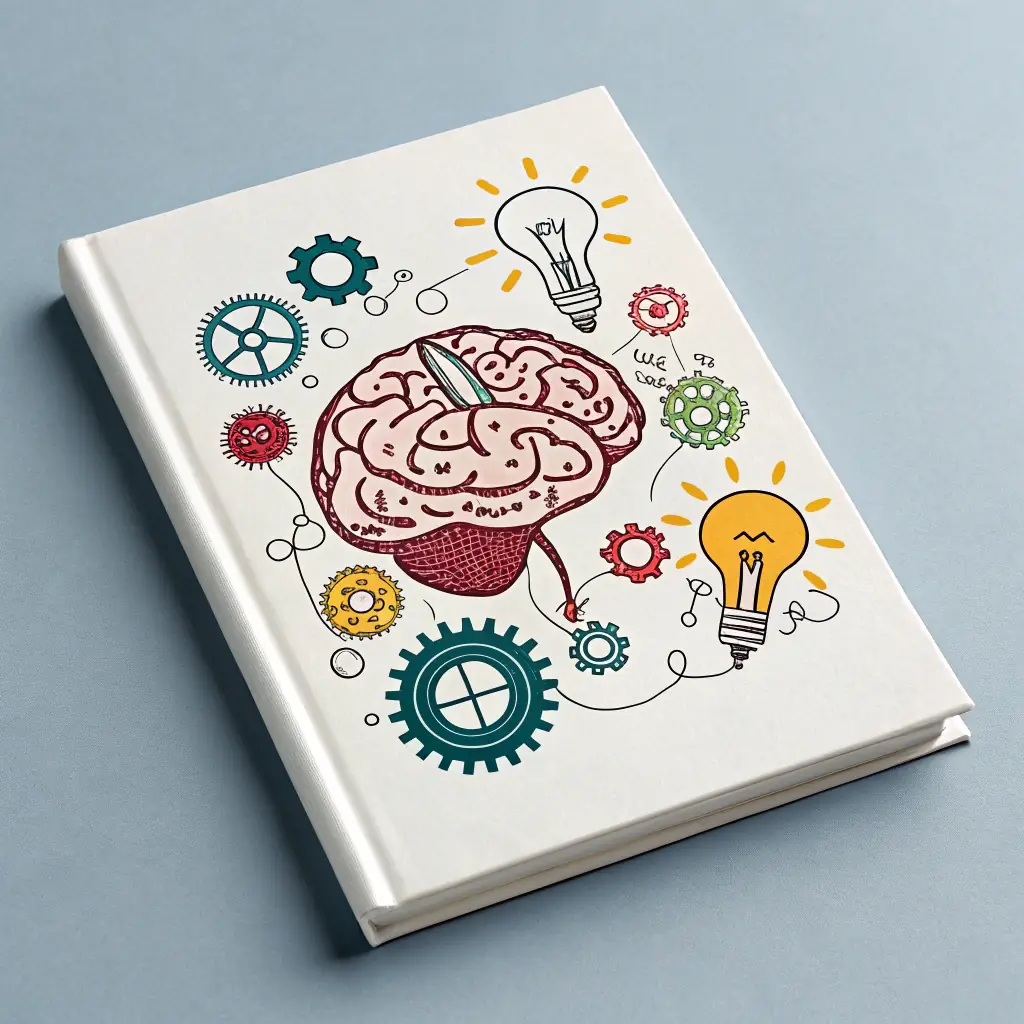The Evolutionary Mismatch: Why Your Ancient Brain Struggles in the Modern World
How Your Brain’s Old Operating System Is Short-Circuiting in Today’s Hyperstimulated Society
We live in a world of instant notifications, endless choices, and overwhelming noise. From the moment we wake up, our senses are assaulted by screens, traffic, headlines, social pressure, and artificial urgency. Yet the brain that tries to handle it all was not designed for this world — it was shaped over millions of years to survive in small, stable tribal settings. This deep mismatch between our biological wiring and modern environments is what evolutionary scientists call “evolutionary mismatch.”
Understanding this mismatch isn’t just interesting — it’s vital to reclaiming your mental health, managing stress, and regaining control of your emotional life.
1. Your Brain Was Designed for Simplicity and Stability — Not Digital Chaos
For 99.9% of human history, people lived in small tribes of 50–150 individuals. Life was physically demanding but socially stable. Each person’s role was clear, daily decisions were limited, and social feedback came face-to-face — not via likes or emojis.
In contrast, the modern brain is bombarded by:
Thousands of micro-decisions daily
Constant digital stimulation
Multitasking across multiple apps
Abstract threats (emails, deadlines, status anxiety)
Chronic comparison through curated social feeds
🔬 Scientific Insight: According to Dr. Daniel Lieberman, Professor of Human Evolutionary Biology at Harvard, “The brain is like an old car engine trying to run on rocket fuel. It wasn’t made for this pace or pressure.”
(Source: The Story of the Human Body, Lieberman, 2013)
2. The Amygdala’s Overdrive — Why You React Like You’re in Danger
The amygdala, a small almond-shaped structure in the brain, evolved to detect immediate physical threats — like predators or hostile strangers. It triggers the fight-or-flight response: heart racing, muscles tensing, stress hormones surging.
🧠 But here’s the problem: your amygdala cannot distinguish between a real tiger and a critical email or social rejection. That’s why:
A negative comment can feel like an attack
A silent phone can feel like isolation
A deadline can trigger full-blown anxiety
📚 Supporting Study: In a 2021 meta-analysis published in Nature Human Behaviour, chronic exposure to non-physical social threats was shown to activate the same neural stress circuits as physical danger — especially in the amygdala and hypothalamus.
3. Decision Fatigue — Too Many Choices, Not Enough Focus
Early humans made limited, meaningful decisions: “Should we hunt here or move the camp?” Today, you make thousands:
What to eat?
Which email to open first?
Which tab to click?
What to post?
What to wear?
💡 Key Concept: This constant decision-making depletes your prefrontal cortex — the brain’s CEO — reducing your willpower, self-control, and clarity.
📖 Dr. Roy Baumeister, psychologist and author of Willpower, coined the term “decision fatigue”, showing how even minor choices accumulate and exhaust the brain’s processing power.
4. Information Overload — Stimulation Without Meaning
Your brain evolved to crave stories, eye contact, and meaningful social bonding. These once served survival purposes — they created tribal cohesion and mutual protection.
But today, we face:
Raw data without context
Clickbait that tricks your attention
Headlines engineered to provoke
Endless scroll without resolution
This is like feeding the brain mental sugar — temporarily stimulating, but ultimately empty and exhausting.
🧠 Dr. Anna Lembke, professor of psychiatry at Stanford and author of Dopamine Nation, explains that modern media creates dopamine surges without emotional nourishment — leading to addiction-like patterns of attention and stress.
5. Always “On” — No Rest, No Reset
In tribal life, activity alternated with deep rest:
Hunt → Rest
Socialize → Sleep by fire
Move → Pause
Your nervous system was built for rhythms, not continuous stimulation. Today?
Emails ping at midnight
Notifications hijack meals
Screens glow into the night
Multitasking becomes the norm
This constant activation fries your stress circuits — leading to burnout, anxiety, brain fog, and emotional volatility.
📊 A 2022 study in The Lancet Psychiatry found that poor digital boundaries were directly correlated with elevated cortisol levels, poor sleep, and emotional dysregulation in adults aged 18–45.
What You Can Do: Real Strategies to Rewire and Rebalance
You can’t go back in time — but you can realign your life with how your brain actually works.
✅ 1. Quiet Zones = Mental Reset
No screens an hour before bed
Silence or nature sounds after meals
“Airplane mode” for 2 hours daily
📖 Try: The “Phone-Free Morning” habit — proven to reduce daily stress by 23% (Mindful Tech Survey, 2021).
✅ 2. Nature as Neuro-Medicine
20 minutes in green space lowers cortisol
Forest sounds activate the parasympathetic (rest) system
🌿 Cited in a Frontiers in Psychology review (2020): even brief exposure to nature boosts mood, focus, and immunity.
✅ 3. Single Tasking = Brain Efficiency
Chew your meals consciously
One tab at a time at work
Full attention to one person
Your working memory has limits. Respect them.
✅ 4. Choose Meaning Over More
Limit inputs to quality sources
Deep reading over endless headlines
Silence over shallow noise
Let your brain digest rather than choke.
✅ 5. Reclaim Ancient Rhythms
Honor your sleep-wake cycle
Move naturally — walk, stretch, breathe
Eat slowly, ritualize transitions
Your ancestors didn’t rush — and they thrived through rhythm.
Final Reflection: You’re Not Weak — You’re Out of Sync
If you’ve felt:
Chronically anxious
Always behind
Overwhelmed by small decisions
Disconnected from joy
…it’s not a personal failure. It’s a biological misfit — your ancient, brilliant brain trying to survive in a hyper-digital age it wasn’t designed for.
The Good News?
You can work with your evolutionary design, not against it.
You can create space, stillness, focus, and meaning.
You can turn overwhelm into understanding.
And you’re not alone — millions are waking up to this awareness.
The Evolutionary Mismatch: Why Your Ancient Brain Struggles in the Modern World
How Your Brain’s Old Operating System Is Short-Circuiting in Today’s Hyperstimulated Society
The human brain evolved in a world of scarcity, real danger, and slow-paced social life. Our neural circuits—designed for spotting threats, storing extra calories, and seeking belonging—served us in tribes but can easily misfire today. In the modern world, endless notifications, social comparison, always-available food, and constant information overload overwhelm the brain’s “old operating system.” This mismatch explains why many people feel chronic stress, anxiety, distraction, and unhealthy habits even in safety and abundance. Recognizing this gap empowers you to shape your habits, manage your environment, and upgrade your mental “software” for the challenges of today.
References
-
Li, N. P., van Vugt, M., & Colarelli, S. M. (2018). The Evolutionary Mismatch Hypothesis: Implications for Psychological Science. Current Directions in Psychological Science, 27(1), 38–44.
DOI: 10.1177/0963721417731378
Find in Google Scholar -
Barrett, L. F., & Kurzban, R. (2006). Modularity in Cognition: Framing the Debate. Psychological Review, 113(3), 628–647.
DOI: 10.1037/0033-295X.113.3.628
Find in Google Scholar - What Is Evolutionary Mismatch? (Verywell Mind, 2023 summary)
- Evolutionary Psychology (Psychology Today, 2024)
